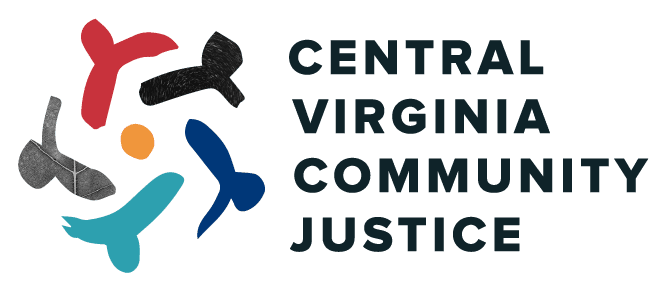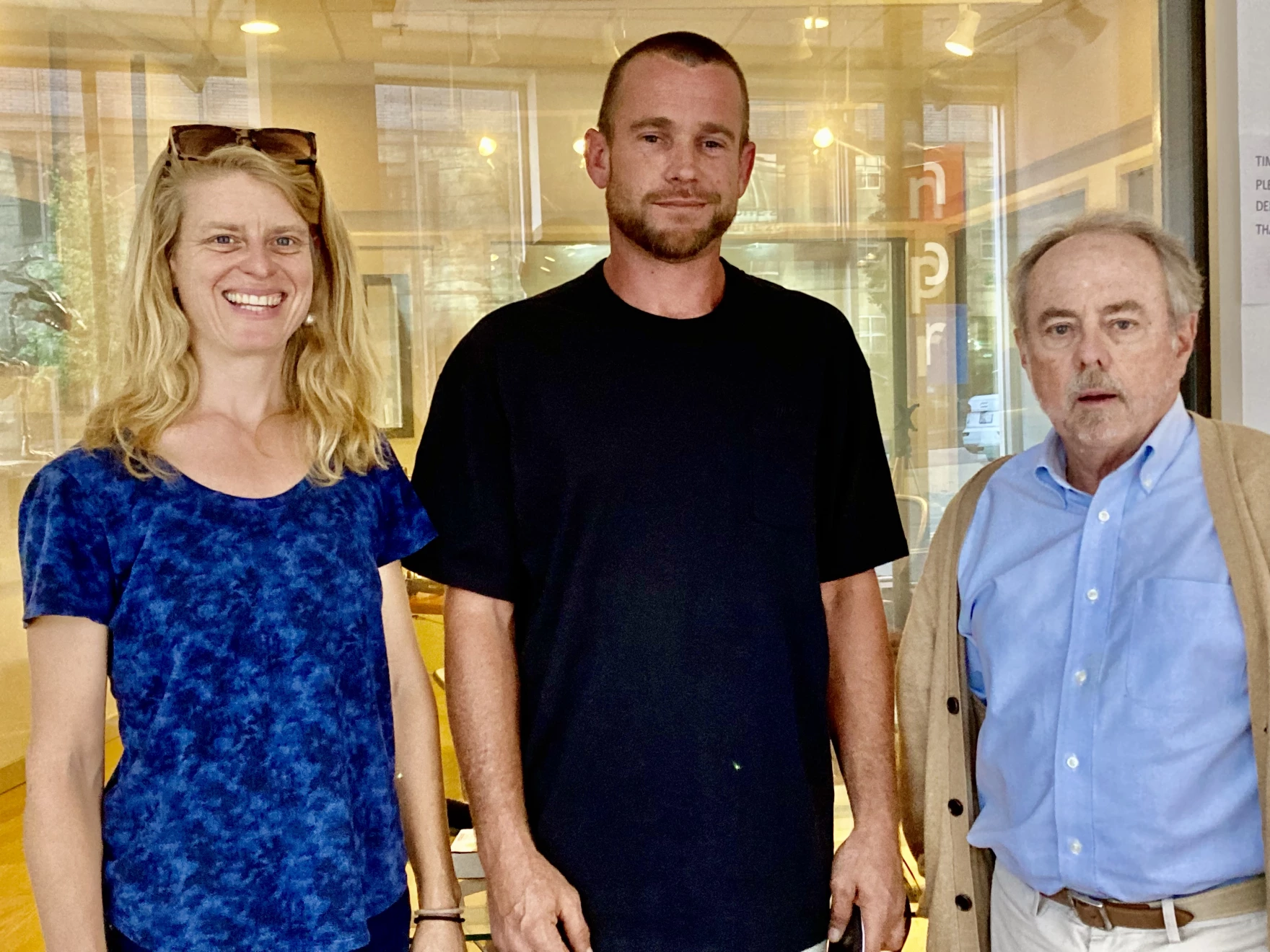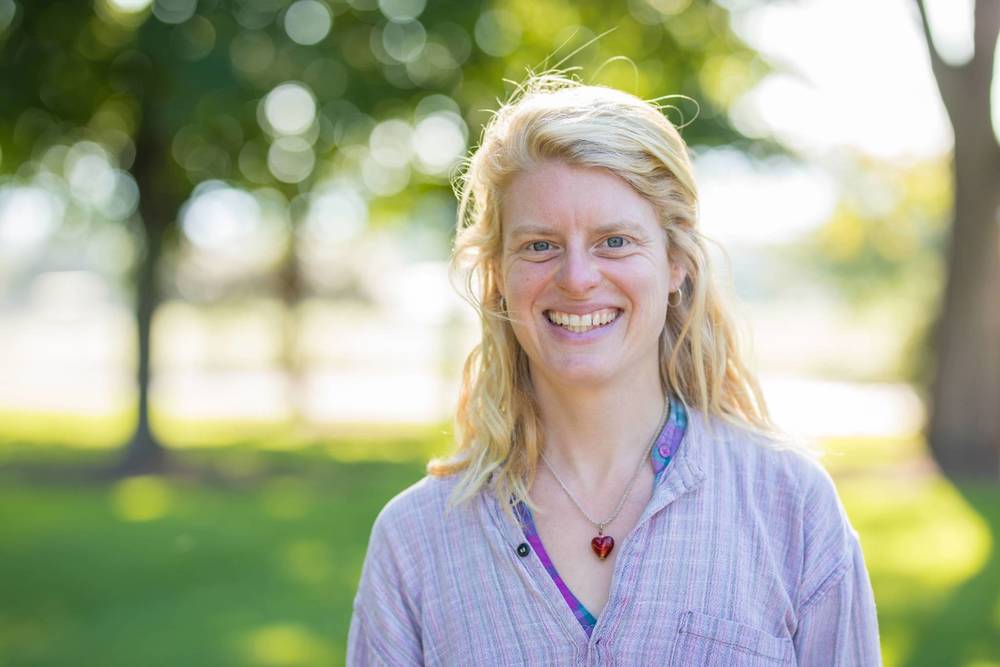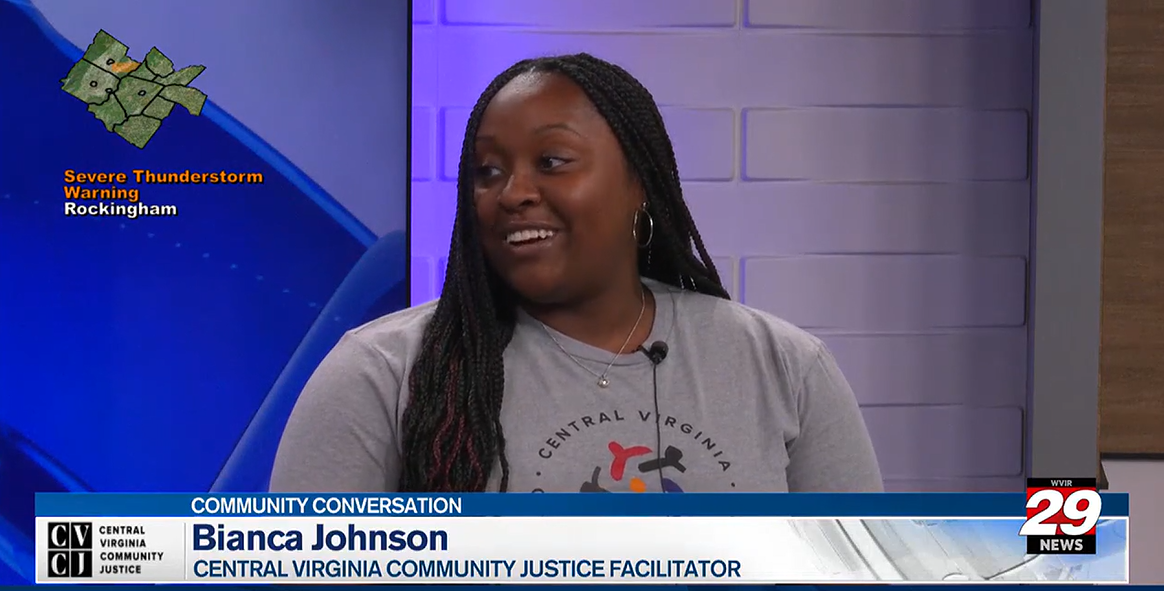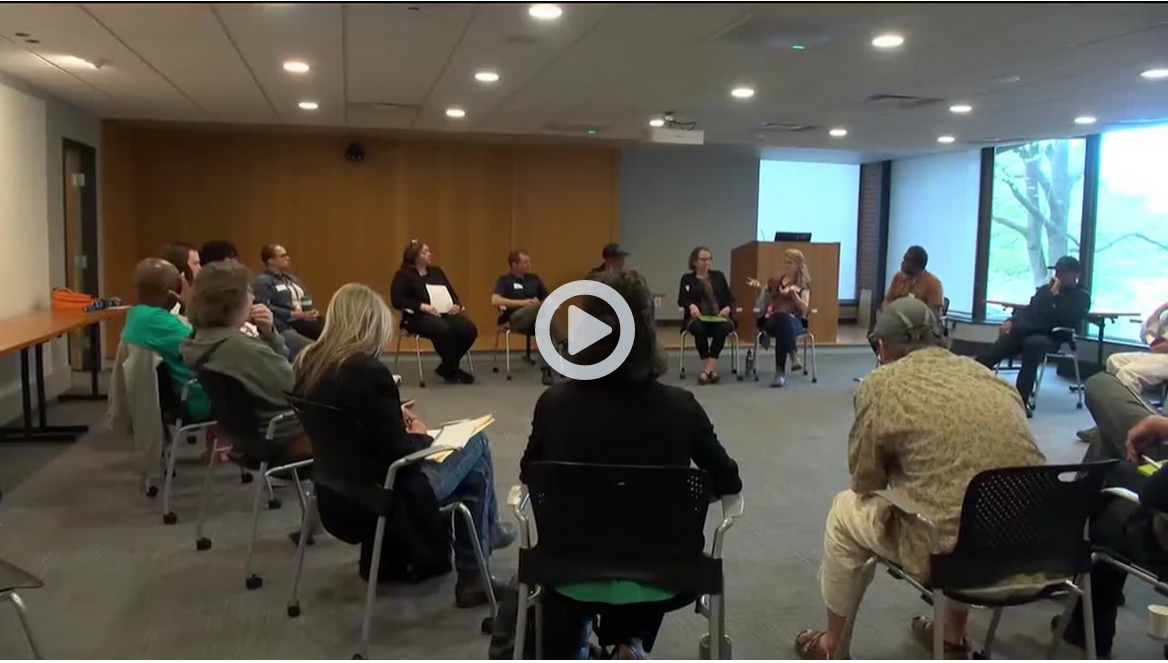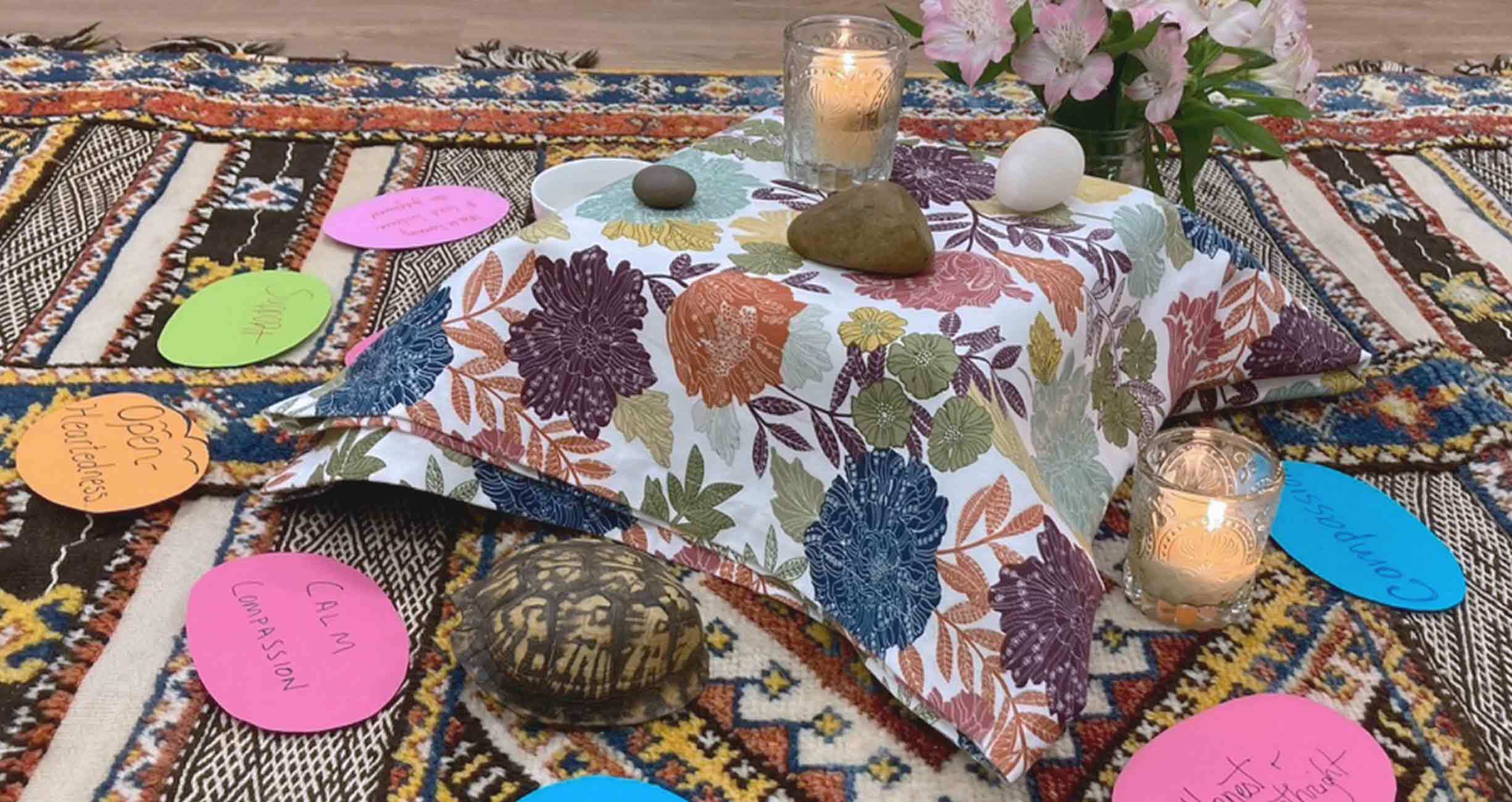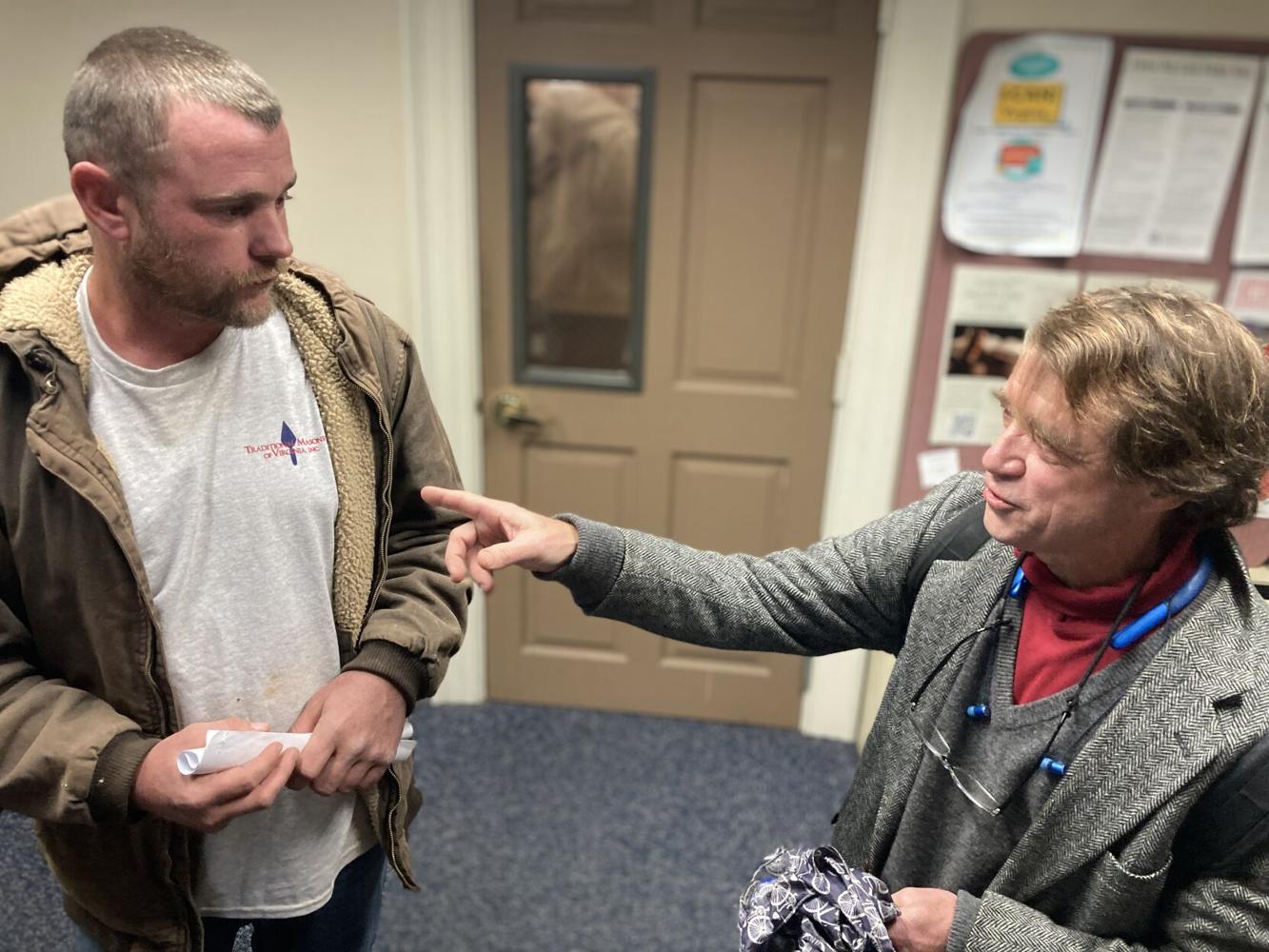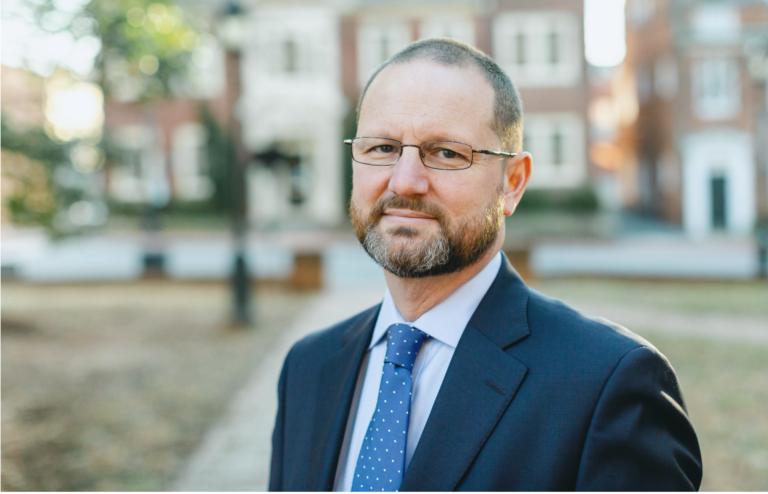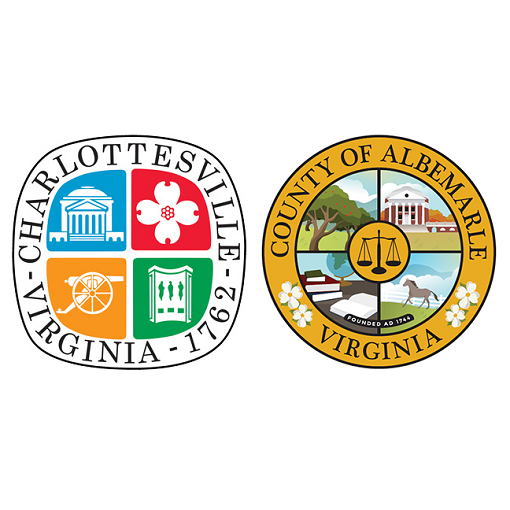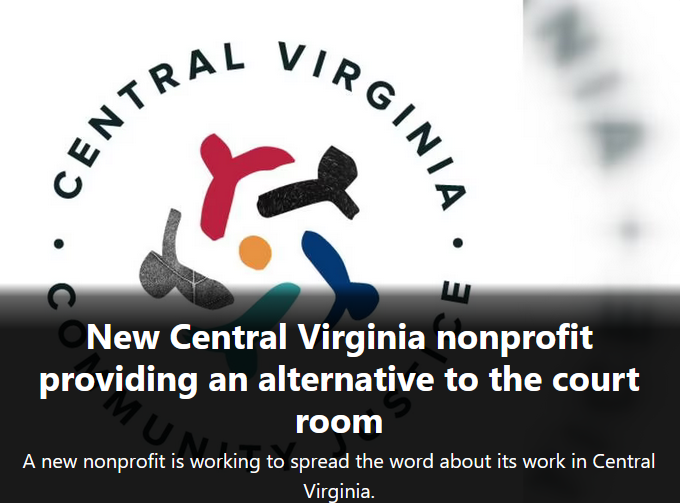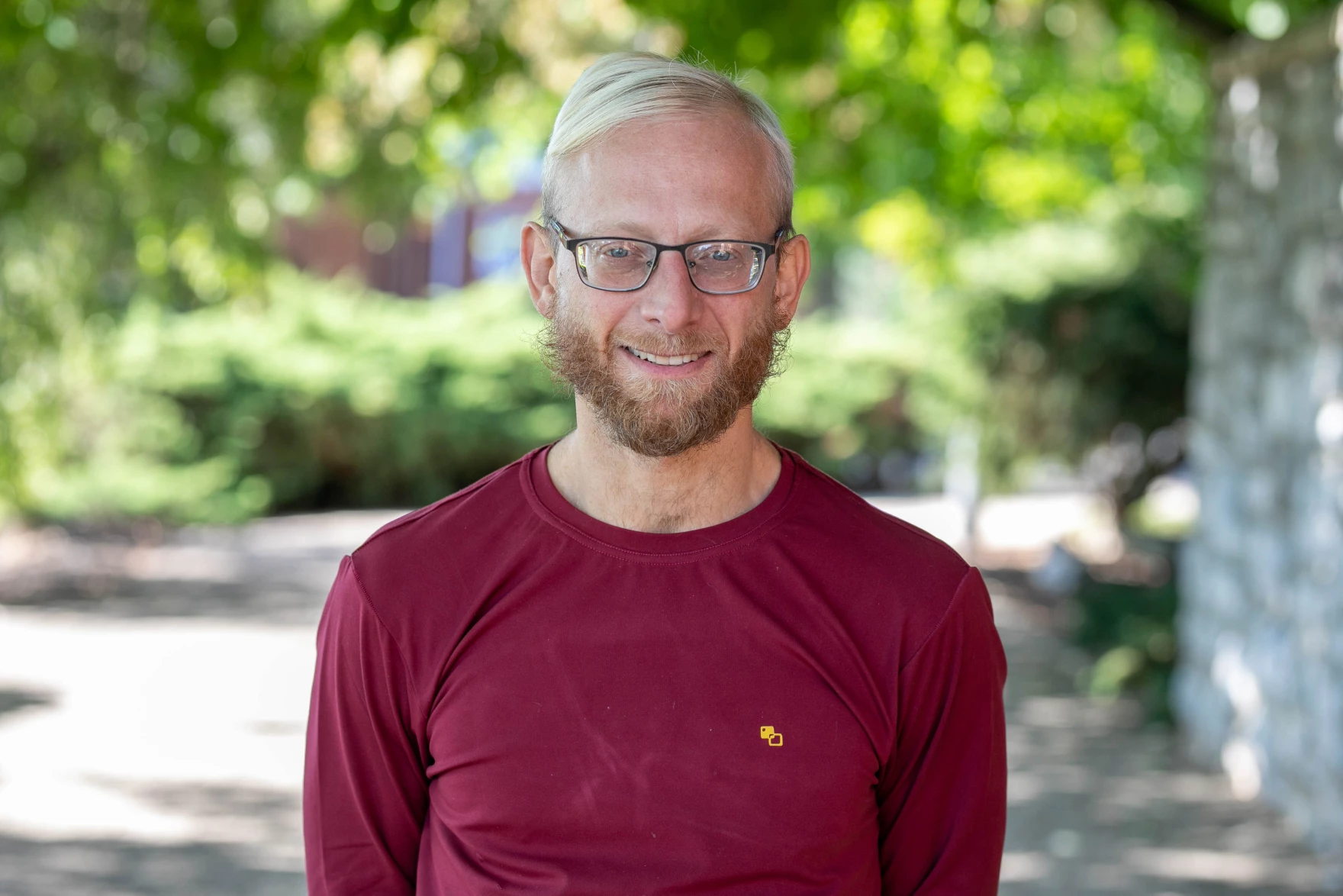Media
-
Victims and perpetrators of crime find an alternative to trials in Virginia
Doug Ford wanted Jesse Morris to remind drivers that they have to share the road and focus solely on driving. “What I wanted was some sort of community impact that would just make the road safer for all of us.”
-
Healing harm
Center for Justice & Peacebuilding alumna leads Charlottesville restorative justice program. “Instead of isolating people in jail or through a sterile criminal legal process, we’re connecting people to empathetic facilitators who treat everyone with dignity and who center the needs of the harmed person and the safety of the community,” Campbell said.
-
Traffic Violence and Restorative Justice
This event addressed the intersection of two of the most powerful (and problematic) systems in our community: transportation and criminal justice. When someone is harmed by traffic violence, how should the legal system respond? One approach is primarily punitive/carceral, while another approach downplays the severity of the harm caused. A restorative justice model attempts to avoid the pitfalls of these two approaches and has recently become a criminal diversion option in Charlottesville and Albemarle. Erin Campbell, Co-Director of Central VA Community Justice and Shannon Neal, Assistant Commonwealth’s Attorney for Albemarle County discussed this model. We also heard powerful stories from the survivor & the driver of a local hit and run case who chose the restorative justice option.
-
Panelists discuss conflict resolution with Charlottesville Community
An event at the Tom Tom Festival is helping people with conflict resolution. Let’s Talk focused on group discussion about what to do when you are dealing with a variety of people. Attendees listened and learned from Charlottesville advocates and vice-versa.
-
Looking Beyond Bars to Meet Crime Survivors’ Needs
People harmed by crimes want more than punishment. Restorative justice programs deliver.
This article by the Vera Institute of Justice features a CVCJ case.
-
Albemarle hit-and-run case demonstrates restorative justice
“Two years after its inception, a criminal diversion program in the Albemarle County and Charlottesville court systems is building healing after people have been wronged or hurt.”
To listen and read more: https://www.wmra.org/2024-02-07/albemarle-hit-and-run-case-demonstrates-restorative-justice?fbclid=IwAR35fIwiKe1kMoeDPaomz_IoLGoP1EtkFOcxelf69olsuuu79c9qdOFhgV4
-
Earlysville hit-and-run driver to participate in ‘restorative justice’ program, avoids jail time
A recently formed organization called Central Virginia Community Justice can step in when a victim, such as Ford, permits it. The prosecutor must also agree to any plea agreement, and Assistant Commonwealth’s Attorney Shannon P. Neal made the motion Thursday to reduce the criminal charges.
The deal that Judge Quatrara accepted allowed Morris — originally charged with felony hit-and-run plus two other offenses — to plead guilty to a single misdemeanor count of leaving the scene of an accident. The penalty was set at 12 months with all jail time suspended, and this was greeted with acclaim by the victim, who is a lawyer with a nonprofit legal clinic focused on immigration, asylum and other human rights matters.
“I think this is great,” Ford told the court. “Punishment is not a big part of my approach to the law.”
-
WINA – Joe Platania & Jay James discuss restorative justice
“If our goal is healing and repair… I think we have to look at different approaches and different ways of doing things.” -Joe Platania, Commonwealth’s Attorney for Charlottesville
-
The Albemarle & Charlottesville Commonwealth’s Attorney’s Offices and Central Virginia Community Justice Commit to Improve Public Safety and Racial Equity in Partnership with Vera Institute
August 22, 2023
CHARLOTTESVILLE, VA – Today, the Albemarle & Charlottesville Commonwealth’s Attorney’s Offices and Central Virginia Community Justice announced a new partnership with the Vera Institute of Justice, as part of their Reshaping Prosecution Program’s Motion for Justice program. Vera will provide Central Virginia Community Justice with financial support to expand its diversion programming and provide the commonwealth’s attorney’s offices with data analysis, staff training, community engagement support, and policy expertise to increase diversion and pursue reforms centered on race equity.
For more information, click here.
-
In the Movement podcast with Central Virginia Community Justice
Central Virginia Community Justice is a restorative justice diversion program based out of Charlottesville, VA. They provide a “brave space for those involved in harm to lead their own accountability and healing.” CVCJ acts as a restorative alternative to the standard, punitive path of the criminal legal system. Hear from Tarek Maassarani, one of the program’s co-directors, and Bianca Johnson, a facilitator with the program, about the program’s origins, growth, and mission. Consider this a case study in the EJUSA Evangelical Network’s overall hope to center healing and repair over prosecution, prisons, and police.
-
New Central Virginia nonprofit providing an alternative to the court room
CVCJ has a different way of handling cases. Instead of going to the courtroom, a solution is facilitated through conversation.
“Restorative justice is a way to address harm that isn’t punitive. It puts the needs of the person that was harmed first, and they get to kind of make the choice and how the person that caused harm gets to make things right,” Johnson said.
https://www.nbc29.com/2023/05/16/new-central-virginia-non-profit-provides-an-alternative-court-room/
-
Newsradio WINA
Newsradio WINA, April 11 2023
Hear Albemarle County Commonwealth’s Attorney Jim Hingeley talk about Central Virginia Community Justice and restorative justice in this area.
-
Life in the Heartland: Justice Reform
Albemarle County and the City of Charlottesville have initiated a restorative justice diversion program as an alternative to prosecution. Programs like this focus on the harmful impact of a crime and define what can be done to repair that harm, while holding the offender accountable. Key to the process is a face-to-face meeting between the offender and victim, moderated by a trained facilitator.
For the technique to succeed, the parties have to let go of preconceived notions about prosecution. These discussions focus on healing, rather than punishment. They affirm that the survivor has been wronged and has suffered. Then the conversation turns to solutions: How can we make this better? View the full story here.
-
A More Humane Approach: Local program offers an alternative to the courtroom
Julie, a 21-year-old UVA student, was at a bar with her friends when she was physically assaulted. A stranger grabbed the baseball hat off her head, and when she attempted to get it back, he struck her in the face, before fleeing the scene and being apprehended by university police.
After the incident, Julie, who asked that we not use her real name, was referred to the Albemarle Charlottesville Restorative Justice Diversion Program as an alternative to prosecuting her assailant…
-
Restorative justice pilot program comes to Charlottesville area
A new program in the Charlottesville area aims to provide an alternative path for those accused of crimes – and their victims – outside of the courtroom.
